When you head into the woodshop, what’s more important? Getting your work done fast or taking time to “smell the roses” and enjoy the process of woodworking?
On Thursday, two Fine Woodworking staffers will face off in a live video event, a Tenon Shootout, each championing their favorite technique. Art director Michael Pekovich favors the tablesaw/dado set method while associate editor Matt Kenney likes to cut his tenons by hand.
This raises the question… what do woodworkers value most when they head into the shop? Is your top priority to crank out furniture pieces? (Whittling down the honey-do list? Or getting client pieces out the door?)
Or, is the process of woodworking the destination? For hobbyist, perhaps they spend enough of their time focusing on speed during their day job. Maybe shop time on weekends or evenings is an opportunity to slow down.
What do you think? Vote in our poll or post a comment below with feedback. We’ll bring up these results in the Shootout on Thursday.
<!–
// –>
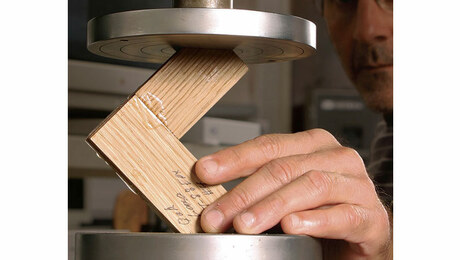

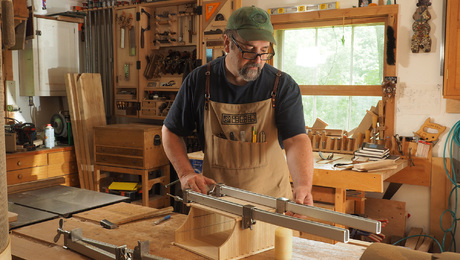
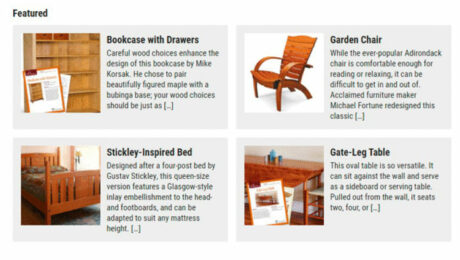


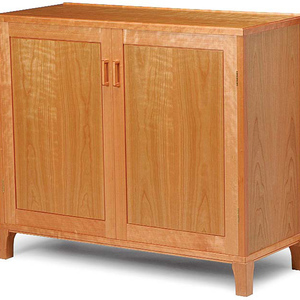
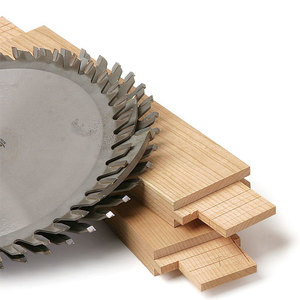











Comments
My answer is "it depends". I get very little satisfaction out of things such as sharpening, dimensioning lumber, sanding, and applying that 5th coat of varnish. However, I get a great deal of satisfaction from design, lumber selection, component layout, joinery, and finish planing. So I invest in as much big iron and automation for the tasks I don't enjoy so I can spend more time on the parts I do enjoy.
Gina,
Working in a 'hand tool only' woodshop it always has to boil down to the love of the craft- even when I'm pushing a clients piece out the door! If that feeling ever changes I'd probably just go back to the Set Design Industry.
That said, hand tool work doesn't have to be slow and I'll be interested to see the outcome of the Tenon Shootout-
Cheers!
In my experience, the speed of completion is a major component of woodworking enjoyment, particularly when speed doesn't compromise quality. I think I can echo the feelings of most of my fellow woodworkers if I say that our minds are in constant motion, striking the balance between higher quality and more efficient methods.
At heart, most of us are engineers. One of the many aspects of woodworking we enjoy is the problem-solving reality of time vs precision, while balancing art with durability.
I've been a woodworker for thirty years, a pro for about 22 years. I the more I know, the more I realize how much I still have to learn from others. Many of us (myself included) tend to happily go at full mental throttle in the shop, and then "smell the roses" at the end of the day, after a shower, and with a Pabst.
I think the answer depends on whether the work is being done as a hobbyist or a pro, where time is a balance between quality and profit.
Personally, I mostly like to take my time, smelling the fresh shavings (or, sawdust) along the way.
With respect to methods (the focus of the tenon-out), however, my choices are often based on how I feel my hand skills compare, precision-wise, to what I can achieve with a machine. Proper set-up of the machine often takes longer for me, though.
I think its both. There are times when pine shavings smell like heaven and times when they smell like mulch. There are times when I could take all day hand planing a piece of cherry and days when I'd rather put it through a machine. There are projects that I have to finish by the end of the day for me or someone else and those that I've yet to finish for me or someone else. I think what's more important isn't how long it took to do the project, but how long I remember the project after its done.
Is not all or nothing to me. Is both. Depends. I don't like to be absolute ... and I am absolute about this.
although I like the process of working wood, the reason for doing it is to make something for my clients or myself to enjoy and use.
I am more of a machinist and enjoy the set up, making fixtures and jigs as much as the project. I also think I may get more bang for my machine dollar than I do form high quality specialized hand tools. My favorite machine tools are old made in the USA heavy iron that I enjoy bringing back to life and using. All that being said it’s hard to beat the feel of a well tuned quality hand plane in action.
I like being able to do something that requires some skill and is somewhat unique. Couple that with creating something that is a little different and can be shared with others; that has great appeal. The rest is a pleasant way to spend time.
Personally, I'm always trying to improve my speed. I love the process, but want to be more efficient. I don't like tedious, stuttering tasks. I like to get in a groove and work quickly. In other words, just because you enjoy the process doesn't mean you can work quickly and efficiently.
Matt
if i'm making a piece for a customer i'm more than likely using a jig setup (accuracy and speed) if i'm making something for myself or a friend or family i'm more than likely doing it by hand (that's when i'm doing it for fun and not worrying about dollars). And FesGaucho, 60 percent of the time i'm right 100 percent of the time (stolen line), that is my absolute.
I don't understand how anyone can just say that the process is the destination. Part of the joy of the process is in knowing it leads somewhere. Who wants to plant a garden if there's not going to be any tomatoes? I think we call it accomplishment, and without it it's called spinning our wheels. As I learn more about this craft, I find it very satisfying to see myself improving at moving through the process toward an end. I'm not happy with my efficiency so I'm going to spend some money on a class and get some help with that. If I can learn to cut dovetails for a drawer in an hour (at the same or better quality), I'll feel more proud than if it takes me four hours. The improving is what keeps me coming back to it. But, if I don't have an aptitude for the work, I'll have to settle for being content with the process... I'll spend less on wood, which is good. And there's no pressure.
I am not sure that speed and process are mutually exclusive. I agree that I am looking for results and if I don't have the skill for an entirely hand cut approach, I'll use the tools and skill I do have to make my project. I see nothing wrong with some power assist to get a better result than I could do by hand.
Well aware that this comments thread is ancient, perhaps me writing this is also an end unto itself (journey rather than destination). I wish more people read about Frederick Taylor - the man arguably had greater influence than anyone else in designing our modern methods of production. Before him, machinists set the speeds of their lathes - his experiments in efficiency and metallurgy allowed him to speed up the speeds of machines in his shop. Just the change in sound of the machines' whirr was described as going from 'leisurely' to 'anxious.' This is the water we swim in: we conduct our own "time and motion studies" all the time, thinking about how best to accomplish things. While standardization shook out a lot of craftsmen's idiosyncrasies (which shares common etymology with 'idiot') we should realize that before then many individuals felt self-assured in their method of work. If profit isn't a matter of concern and, more importantly, the safety of two techniques are effectively equal, why not take the scenic route? In my case, that doesn't mean not working vigorously - I like working up a sweat in the shop - but I don't want to feel hurried. Since I feel hurried in most other parts of my life (I work in medicine), it actually takes some effort to not systematize everything I do. But I don't like dust, loud machines, or fearing for my fingers. But the other side of industrialization was the standards of exacting precision we hold ourselves to - that also can spoil the fun for me. Part of the appeal of woodworking was becoming free from measurement, but using gang-sanding, dividers, and 'sneaking up' on cuts, which I find to be liberating.
Log in or create an account to post a comment.
Sign up Log in